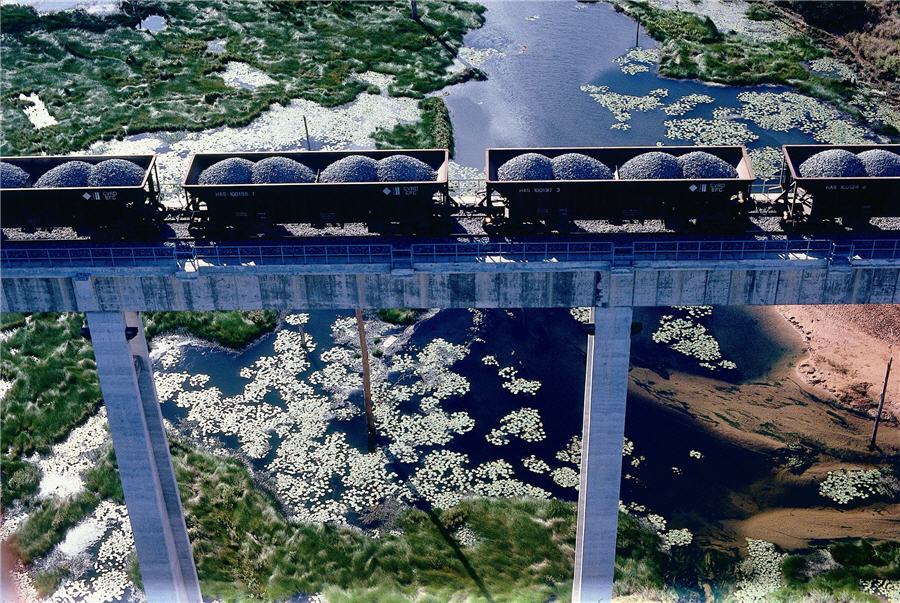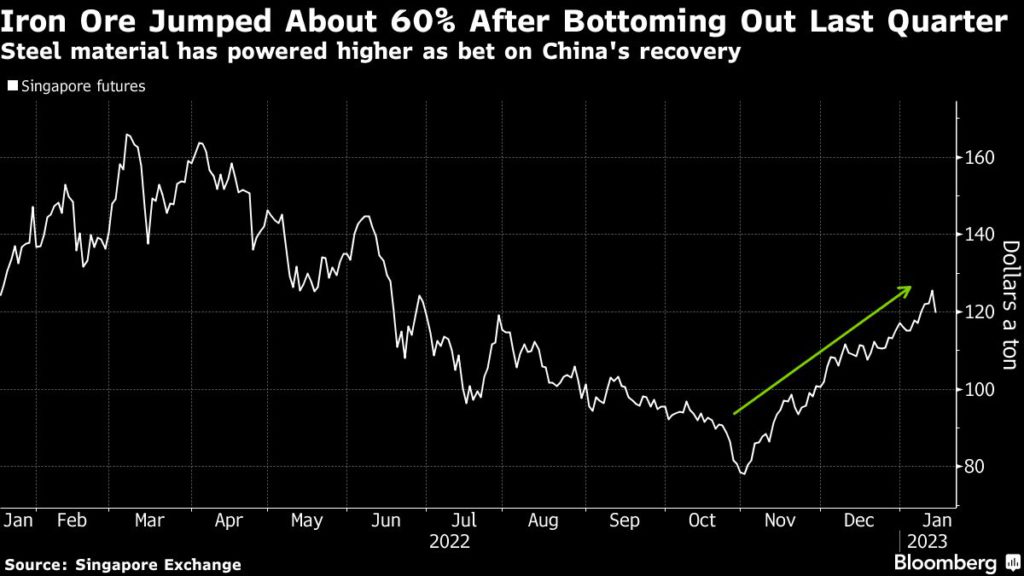
China’s top economic planning body has summoned a group of iron ore traders and asked them to provide details of recent business, a sign that authorities want to head off fresh commodity inflation as the economy rebounds.
At least five domestic iron ore traders or brokerages are set to meet Tuesday with officials from the National Development and Reform Commission to discuss the market, according to people with knowledge of the matter. The NDRC requested the firms’ recent trading records for physical and futures markets ahead of the talks, said the people, who asked not to be identified as the information is private.
Iron ore futures jumped almost 60% from the end of October through last Friday, before slumping Monday on fears over action by authorities to quell the rally. The steel-making material has surged on hopes that infrastructure and construction activity will rebound this year as China’s economy expands faster.

The summons from the NDRC’s Department of Price echoes previous drives to rein in iron ore, including in the first half of last year when soaring global commodity prices fueled concerns over inflation. The department has taken on a key role in monitoring — and trying to cool — price surges in markets from coal to soybeans as well as iron ore.
China takes about 70% of the world’s iron ore exports, and the commodity is highly sensitive to expectations for government-backed stimulus. Economists have rushed to boost forecasts for Chinese growth since President Xi Jinping ditched Covid Zero, and other raw materials have also gained. Copper breached $9,000 a ton for the first time since June, while shares in top global miner BHP Group hit a record on Monday.
The NDRC didn’t immediately respond to a faxed request for comment.
Plans for an NDRC meeting on Tuesday were reported earlier Monday by the official Securities Daily. On Sunday, the agency publicly warned about false market information and pledged more measures if needed to ensure stable prices.
China has long sought ways of gaining more sway in iron ore, where it’s highly reliant on imports from a small number of global mining firms. Last year, the government created a new state-owned firm — China Mineral Resources Group — to purchase imports on behalf of the country’s biggest steel mills in a bid to boost negotiating power.
Inflation is expected to stay mild this year, Zou Lan, head of the monetary policy department at the People’s Bank of China, said at a briefing last week. But he added that authorities “must not let our guard down” as prices could rise on rapid money-supply growth, the release of pent-up consumption and imported inflation.
In the first week of 2023, the NDRC said it was “highly concerned” about iron ore’s moves and would tighten supervision of the market. Citigroup Inc. said in a Jan. 4 note that iron ore was trading like a financial asset and that futures prices had outstripped improvement in fundamentals.
(By Alfred Cang, with assistance from Fran Wang)
Comments